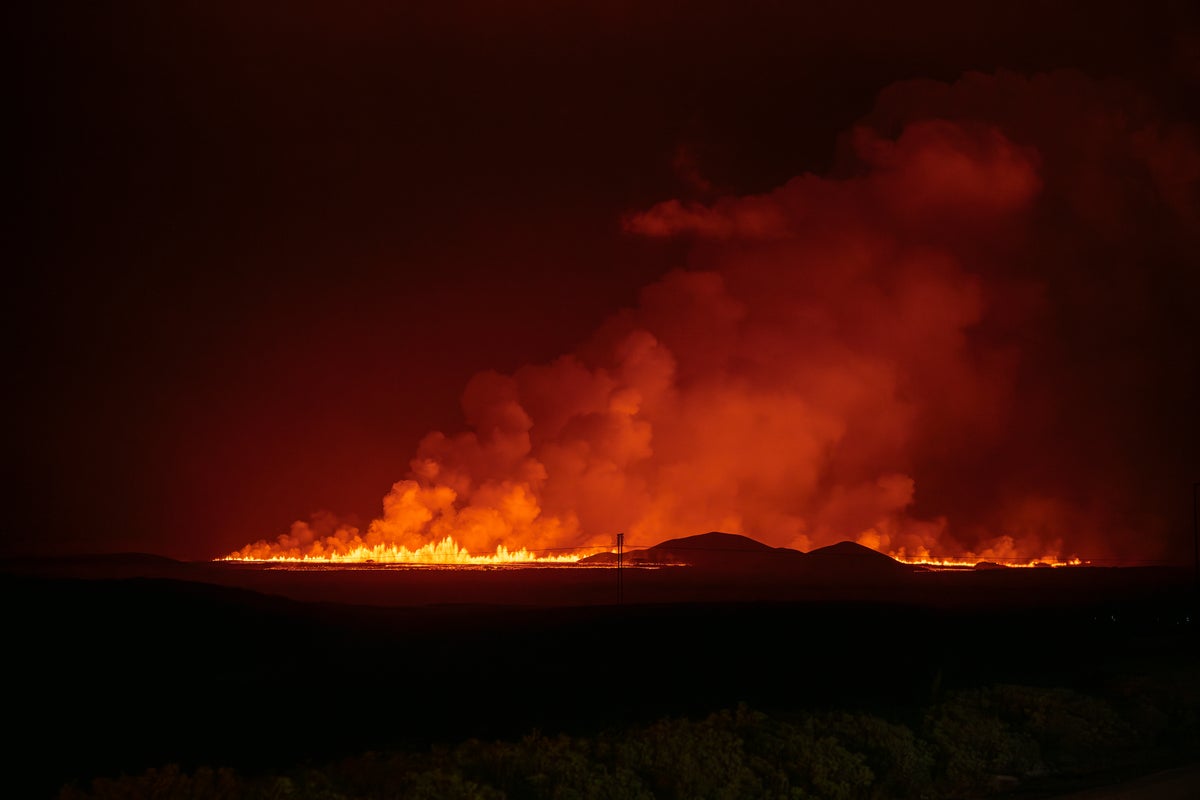
Support truly
independent journalism
A volcano in southwestern Iceland erupted Thursday evening for the sixth time since December, spewing red lava through a new fissure on the Reykjanes Peninsula.
The eruption began shortly after 9 p.m. following a series of strong earthquakes and within the hour a 4-kilometer (2.4-mile) fissure cut through the Sundhnúkur crater.
Iceland authorities say the eruption’s effects remain localized with road closures but do not threaten the population.
Halldór Björnsson, head of weather and climate at the Norwegian Meteorological Agency, told the Icelandic news portal Vísir, that unlike previous eruptions, the lava flow is not heading for the town of Grindavik that was largely evacuated in December when the volcano came to life after being dormant for 800 years.
Magnús Tuma Guðmundsson, a geophysicist, who flew over the eruption centers this evening told the website that “if this continues like this, Grindavík is not in danger because of this. Of course, we don’t know what will happen in the near future, but it is likely that this has reached its peak and then it will start to subside like the other eruptions.”
The eruption is not expected to impact air travel.







